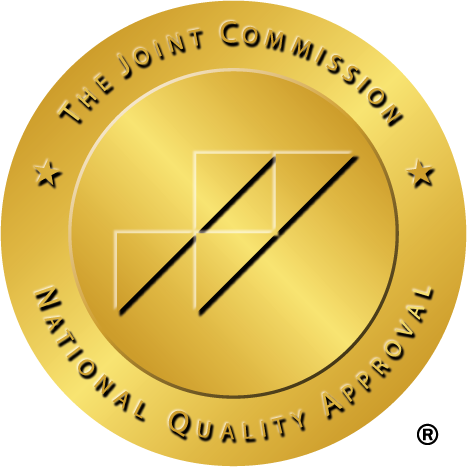Table of Contents
- Concerta® Vs. Adderall®: What Is The Difference?
- Concerta® Drug Facts
- Adderall® Drug Facts
- Conditions Treated by Concerta® and Adderall®
- How These Stimulant Medications Work
- Common Side Effects Of Concerta® Vs. Adderall®
- Drug Dosage
- Which is better Adderall® or Concerta®? Are Either Addictive?
- Treatment Options
- Overcome Concerta® or Adderall® Addiction and Get Help Today!
Key Points
- Both prescription stimulant medications are given to treat Attention Deficit Hyperactivity Disorder (ADHD) to promote focus and control impulsivity.
- Adderall® and Concerta® are schedule II controlled substances due to high risk of dependence and potential for abuse.
- The primary difference between Concerta® and Adderall® is in their ingredients. Adderall® contains amphetamine salts while Concerta® contains methylphenidate.
- Which prescription medication is best will vary from patient to patient, generally by age. Discuss your medication options with your provider.
Which is better Adderall® or Concerta®? There are numerous medical applications for stimulant medicines. One of the major advances in treating attention deficit hyperactivity disorder (ADHD) was the realization that stimulant drugs can assist people with ADHD control their behaviors and impulsivity and focus more effectively. Consequently, a variety of drugs have been utilized to treat ADHD.
Two such drugs, Concerta® and Adderall® are well-known treatments.
Take The First Step in Getting Help
Contact UsConcerta® Vs. Adderall®: What Is The Difference?
Adderall® and Concerta [1] are both prescription stimulants used to treat attention deficit hyperactivity disorder. Behavioral therapy and pharmaceutical stimulants are successful therapies for many persons with ADHD. Although there are many stimulant medications available, it can occasionally be challenging to choose the most suitable one.
Both medications are schedule II, controlled substances, due to their high risk of being addictive.
The main distinction between Concerta® and Adderall® is that while Adderall® contains amphetamine salts, Concerta® contains methylphenidate. Adderall® particularly has an amphetamine and dextroamphetamine blend. The effects of Concerta® stay longer and wear off more gradually over time than those of Adderall®.
Concerta® Drug Facts
So, when it comes to the question of, “Which is better Adderall® or Concerta®?” it’s important to look at the positives and draw backs of both drugs.
Concerta® is the brand name medication used in the treatment of ADHD. It’s generic version is known as methylphenidate.
Concerta® is only available in extended-release. It is well-known for its patented OROS (osmotically regulated release oral-delivery system) delivery technology, which enables periodic drug releases as it moves through the body.
A shell on the outside of the capsule dissolves when Concerta® is swallowed, releasing 22% of the medication’s total dose. As the chambers collect fluid from the colon, three interior compartments then release at various intervals, leading to a protracted drug release.
The Drug Enforcement Administration (DEA) classifies Concerta® as a Schedule II controlled substance. Schedule II pharmaceuticals are highly likely to be abused and become addictive even though they have valid medical applications.
Abusing Concerta® as a stimulant can cause users to abuse harsher stimulants like methamphetamine in the future, thus it must never be used for anything other than its intended function.
Adderall® Drug Facts

Share this image on your website
Amphetamine/dextroamphetamine Adderall® is a member of the stimulant drug class. It’s used to treat ADHD and narcolepsy.Adderall® is the brand name for a prescription stimulant substance with a reputation as a “study drug.” Both authorized and illicit uses of Adderall® are available on college campuses around the country.
There are generic versions for this medication including amphetamine/dextroamphetamine salts. Adderall® comes in two different forms: Adderall® XR is an extended-release capsule, and Adderall® immediate-release. Adderall® XR is released slowly throughout the day, making it better for focus over a longer period of time.
The Drug Enforcement Administration (DEA) classifies Adderall® as a Schedule II controlled substance. Schedule II pharmaceuticals are highly likely to be abused and become addictive even though they have valid medical applications.
Abusing Adderall® as a stimulant can cause users to abuse harsher stimulants like methamphetamine in the future, thus it must never be used for anything other than its intended function.
Conditions Treated by Concerta® and Adderall®
So, what does the FDA think? Which is better Adderall® or Concerta®? The FDA has approved both Concerta® and Adderall® [2] in the treatment of attention deficit hyperactivity disorder. Those with ADHD are often given stimulant prescription drugs by a healthcare provider because the medication is truly an effective treatment for inattention and impulsivity when taken as directed.
Adderall® is a recommended treatment for narcolepsy as it helps you stay awake. Concerta® is sometimes considered for the treatment of narcolepsy as well.
How These Stimulant Medications Work
Stimulant medications like Concerta® and Adderall® work by tapping into the brains response systems. They increase the levels of dopamine and norepinephrine in the synapse, stimulating your nervous system, therefore easing the symptoms of ADHD. While Concerta® is only available in extended-release tablets, Adderall® is available in extended-release and instant release.
Taking stimulant drugs provides dopamine slower and in consistent amounts if you take them for ADHD, just way your brain would normally produce them. This gives you more energy, improves your concentration, and keeps you awake.
Common Side Effects Of Concerta® Vs. Adderall®
As long as a person takes Concerta® and Adderall® as prescribed by their doctor, they are usually safe. Both, though, have some serious drawbacks, however. See our chart below for a list of potential side effects.
| Concerta® Side Effects | Adderall® Side Effects |
| Nervousness | Nervousness |
| Insomnia | Insomnia |
| Lack of appetite | Lack of appetite |
| Weight loss | Weight Loss |
| Headache | Headache |
| Stomach Pain | Stomach Pain |
| Dry Mouth | Dry Mouth |
| Increased heart rate | Increased heart rate |
| Irritability | Irritability |
| Skin rash | Addiction |
| Addiction | |
| Tingling hands and feet |
The following are uncommon negative effects of both drugs:
- Severe anxiety
- Shortness of breath
- Panic attacks
- Mania
- Delusions
- Paranoia
- Hallucinations
- Prolonged painful erections
- Dehydration
One should call their doctor if they suffer any of these side effects while taking Concerta® or Adderall®.
Drug Dosage
Depending on your age, your dose of Adderall® and Concerta® will be drastically different. The dosage for Concerta® and Adderall® is determined by the user’s specific requirements. A doctor can advise introducing one of the medications gradually in order to observe the results.
A doctor might begin by recommending a tiny dose of either drug and increase the dosage if the patient tolerates it but still has side effects. This can go on until a compromise is reached between the medication’s efficacy and minimizing any negative effects.
Concerta® Dosage
For children aged 6-12 the typical dose is started at 18 mg per day and can go up to 54 mg per day.
For teens aged 13-17 the typical dose is started at 18 mg per day and can go up to 72 mg per day.
For adults aged 18-65 the typical dose is started at 18 mg per day and can go us to 72 mg per day.
Adderall® Dosage
For children between 3-5 the typical dose is started at 2.5 mg daily.
For children and teens between 6-18 the typical dose starts at 5 mg daily and can go up to 40 mg per day.
For adults the typical dose is started at 10 mg daily and can go up to 60mg.
Drug interactions and Potential Complications
For Concerta®, some medical problems or other circumstances could increase your risk of injury. In some situations, your doctor might not recommend Concerta®. We call these contraindications. Concerta® contraindications are listed below.
- Turrets
- Anxiety
- Glaucoma
- If you take monoamine oxidase inhibitors
There are some drug interactions that can be dangerous with Concerta®. These include:
- Seizure drugs
- Vasopressors
- SSRIs
- Lithium
- Warfarin
Under certain circumstances, Adderall® shouldn’t ever be utilized. You shouldn’t take Adderall® if you have heart issues, hyperthyroidism, glaucoma, or a history of addiction.
There are some drug interactions that can be dangerous with Adderall®. These include:
- MAOI’s
- Antidepressants
- SSRI’s
- Triptans
- Lithium
- Antacids
- H2 blockers
- Proton pump inhibitors
- Wellbutrin
You should never drink alcohol when taking Concerta® or Adderall®. Consuming alcohol while taking these drugs may increase the likelihood of some side effects. Two examples of this are raised blood pressure and an irregular or fast heartbeat. These side effects may increase your risk of a heart attack or stroke.
The effects of attention deficit hyperactivity disorder (ADHD), for which Concerta® and Adderall® are prescribed, may be made worse by alcohol usage.
Which is better Adderall® or Concerta®? Are Either Addictive?
Concerta® and Adderall® have high risk for being addictive and or abused. Due to the nature of these medications, the attachment to the increased dopamine may be enough to cause a problem in some people, even if they take the medication for ADHD.
Never take Concerta® or Adderall® without medical advice and prescription from a doctor.
Concerta® Withdrawal Symptoms
Concerta® has a strong effect on the brain’s reward system, which makes it easy for an addiction to form. As a drug classified as Schedule II, Concerta® has both medical applications and a strong potential for abuse. Even those who take Concerta® as directed by a doctor run the danger of becoming physically dependent on it or addicted to it, but recreational users run a far larger risk.
If you stop taking this drug suddenly, withdrawal symptoms [3] include:
- Irregular heart rate
- Changes in blood pressure
- Anxiety
- Changes in appetite
- Headaches
- Depression
- Fatigue
- Panic attacks
- Brain fog
- Psychosis
- Dysphoria
Adderall® Withdrawal Symptoms
Adderall® has a strong effect on the brain’s reward system, which makes it easy for an addiction to form. As a drug classified as Schedule II, Concerta® has both medical applications and a strong potential for abuse. Even those who take Adderall® as directed by a doctor run the danger of becoming physically dependent on it or addicted to it, but recreational users run a far larger risk. Moreover, individuals undergoing Adderall withdrawal may encounter additional challenges due to the drug’s impact on neurological pathways.
If you stop taking this drug suddenly, withdrawal symptoms include [4]:
- Depression
- Severe mood swings
- Fatigue
- Lack of focus
- Increased appetite
- Paranoia
- Hallucinations
- Changes in sleep patterns
- Intense dreams
- Anxiety
- Heart palpitations
Treatment Options
If you or a loved one has become addicted to Adderall® or Concerta® there are treatment options. Undergoing detox at a treatment center with consistent behavioral therapy might be the best option to combat substance use disorder.
It is important to consult with your physician before stopping Adderall® or Concerta® as uncomfortable side effects may ensue.
Overcome Concerta® or Adderall® Addiction and Get Help Today!
There is hope if you or a loved one is battling with ADHD or drug misuse, like Adderall® or Concerta®. Helping people and families recover from addiction using compassion and evidence-based treatments is our top priority at New Waters Recovery.
We are here to help you make the shift from struggling with addiction to thriving because we care about your future. Call us right away to go over your treatment choices.
Sources
[1] Huzar, T. Medical News Today. (2022, August 30). Concerta vs. adderall: what is the difference? Retrieved from https://www.medicalnewstoday.com/articles/324925 on 2023, February 24
[2] Drugs.com. (n.d.). What is adderall? Retrieved from https://www.drugs.com/adderall.html on 2023, February 24
[3] Roland, J. Healthline. (2017, March 21). Managing concerta crash: what you need to know. Retrieved from https://www.healthline.com/health/adhd/managing-concerta-crash#concerta-crash on 25, March 2023
[4] Osborn, C. Verywell Mind. (2022, December 1). Adderall withdrawal: symptoms, timeline, and treatment. Retrieved from https://www.verywellmind.com/adderall-withdrawal-symptoms-timeline-and-treatment-4177486 on 2023, February 24
New Waters Recovery Editorial GUIDELINES
At New Waters Recovery, we take your health and wellness seriously. We have a thorough process in place to ensure the integrity of information that is displayed on our website. All content published to our site undergoes a rigorous medical review by a doctorate level clinician to ensure medical accuracy. Read More About Our Process








